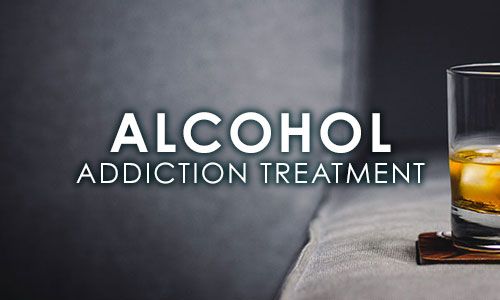The purpose of this article is to help readers understand why alcoholism is so difficult to treat and to offer some suggestions for aiding recovery.
Alcoholism can be very difficult to treat because the pleasurable effects of alcohol precede the negative effects.

In addition, alcohol becomes a coping tool and alcoholics, because of their marriage to the bottle, place themselves outside of the family. Once sober, it becomes very difficult to get back in.
Chemical Effects
Many people are more married to the bottle than to their partner. The consistent use of alcohol creates an emotional as well as a physical dependency. This is because the initial response to drinking is pleasurable as the alcohol pushes the brain to release the chemicals that cause one to feel pleasure. The s Serotonin that the alcohol pushes the brain to release and the Norepinephrine as well leave the drinker in a state of well-being or euphoria that does not last past the hour or so after that drink was consumed. Thus, the drinker takes another drink and another, depleting his brain of all the "feel good" chemicals.
The "hangover" is the response to what happens when the "feel good" chemicals are gone. The drinker wakes up the next morning feeling badly--shaky-depressed-anxious--has very often slept poorly. He thinks he needs another drink. The cycle starts again.
What is actually happening is that the brain has given up its Serotonin and Norepinephrine and is now in a depleted state. The body must now agitate itself to try to replenish the supply of those chemicals. This is the agitation and irritability we see with people who drink regularly and in quantity. In addition, a mild depression gets started that would not be noticed unless the drinker gave up the substance for at least a month. Sleep patterns also get disrupted and anxiety sets in as well which is part of the agitation.
So, the first issue is that drinkers feel GOOD before they feel BAD and when they start to feel badly, they take another drink.
Coping Mechanism
It is well documented in the alcohol literature that people generally stop maturing emotionally at the age where they began to drink seriously. This is because the alcohol becomes a crutch. When they are upset, sad, happy, or the dog pees on the rug, they take a drink. Thus, they don't learn the skills of asking for what they want or voicing objections. This puts them in a state of frustration and they are apt to treat the frustration with another drink.
Family Dynamics
Many alcoholics or problem drinkers, think that the cessation of the drinking will stop the problems. It certainly enables the problems to be addressed. However, just stopping the drinking leaves the door to relapse wide open because new skills are not learned.
People who drink excessively have taken themselves out of the family. They are relating to the bottle but not to the people with whom they live. So, when the problem drinker stops drinking, they are out of things. The family is running without them.
This means that the kids are using the other parent for issues of permission and advice. They see the drinker as "incompetent" and it is impossible to parent from an incompetent position. The sober parent has been running things and resents the intrusion of the drinker after all this time.
Believe it or not, the sober parent may actually try consciously or unconsciously to push the drinker back to the bottle.
How to Help
First, exercise is key to any sobriety program. The Serotonin has got to be replenished in the brain and this takes time. Usually, for problem drinkers, it takes at least six months to begin to feel really good. "Really good" means an absence of anxiety, better sleep, and optimism.
AA meetings are very important. Someone who has problems with alcohol needs to find new friends and new activities where there is not alcohol.
Many people don't want to go to AA. They find it embarrassing. However, by the third or Fourth meeting it usually begins to be rewarding as they meet people who have conquered the problems they are experiencing or are at least working on it as they are.
Family Counseling is an important part of recovery. It is hard on the spouse as the drinker gets more functional and wants to participate in ways that they have not done before or not for a long time. The drinker needs to go slowly and make amends in the family and accept inclusion slowly. This is a prime time when there may be a relapse.
The children need to come to understand how the parent who drank sees things and make attempts to be inclusive of that parent. The children are often fearful of relapses or repeat rages which might have accompanied the old drinking..
Children from such families experience disappointments in unkept promises--the drinker "forgot" or was drinking---they experience unpredictability. Someone who has a history of drinking excessively needs to go out of their way to make amends to those that he or she hurt.
The rewards for the healing of drinking problems are enormous. They signal in families, that bad things can be survived. It takes work, courage, and commitment. It can happen!
